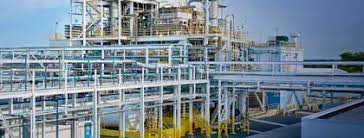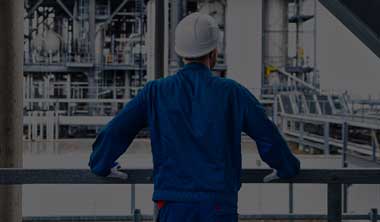Plants: LyondellBasell techs selected for Inner Mongolia complex in China; Trinseo to exit PC business and close plant in Germany

LyondellBasell, the world’s largest licensor of polyolefin technologies, has announced that Inner Mongolia Rongxin will use the its Spheripol and Hostalen Advanced Cascade Process (Hostalen ACP) technologies for its new facility.
The process technology will be used for a 500 kilotonnes/year Spheripol PP plant and a 400 kilotonnes/year Hostalen ACP HDPE plant, to be built in Ordos City, Inner Mongolia Autonomous Region, China.
“Inner Mongolia Rongxin has selected a process enabling them to produce differentiated polyolefins which includes amongst others durable goods and infrastructure material,” said Patrik Schneider, LyondellBasell senior director of licensing. Schneider added: “Having the right technology makes the differences for operators to deliver favorable results in a more selective market environment”.
Hu Yun, General Manager of Inner Mongolia Rongxin said, “We are excited to implement this project and looking forward to foster our relationship with LyondellBasell.”
Spheripol technology has more than 35 million tonnes of licensed capacity. The latest fifth generation Spheripol technology includes process improvements that further maximise operational efficiency. The plant will commence operations using Avant ZN catalyst.
The Hostalen ACP process technology manufactures high performance, multi-modal HDPE resins with stiffness/toughness balance, impact resistance, high stress cracking resistance and process advantages used in pressure pipe, film and blow moulding applications. The Hostalen ACP plant will commence operations using Avant Z501 and Avant Z509-1 catalysts to produce a full range of multi-modal HDPE products.

In other news, materials firm Trinseo says it plans to close down to its polycarbonate (PC) unit at Stade, Germany, by year-end, due to weak demand and prices, oversupply, high costs. In comparison to 2023 results, this action is expected to increase annual profitability by US$15 million to US$20 million, it adds.
It says it has initiated an information and consultation process with the Works Council of Trinseo Deutschland Anlagengesellschaft mbH regarding the potential closure of its virgin PC production site in Stade. The company expects to seek board approval of the closure in 2024 following the Works Council consultation process.
If an agreement is reached, Trinseo will no longer produce virgin PC and will obtain PC for its downstream businesses entirely via external purchases.
“Unfortunately, we continue to see demand soften, and price declines due to the oversupply caused by offshore producers pushing material into the EMEA market. We anticipate these conditions to continue in 2024 and beyond. Additionally, our fixed operating costs at Stade are significant, placing a further strain on our financial viability at this location,” said CEO, Frank Bozich.
In the third quarter 2023 earnings call, the company identified Stade as a potential location for a PC dissolution facility. It adds “the company is committed to the integration and application of modern recycling technologies, such as PC dissolution and depolymerisation, to help customers develop more sustainable product offerings”.
Trinseo says it is exploring numerous options for viable locations to ensure recycling plants are both resilient and adaptive to customer requirements.
The statement concludes, “Developing commercial scale operations in recycling remains a key pillar of the business strategy moving forward as evidenced by the polycarbonate-dissolution pilot facility recently opened in Terneuzen, the Netherlands.”
(PRA)SUBSCRIBE to Get the Latest Updates from PRA Click Here»




